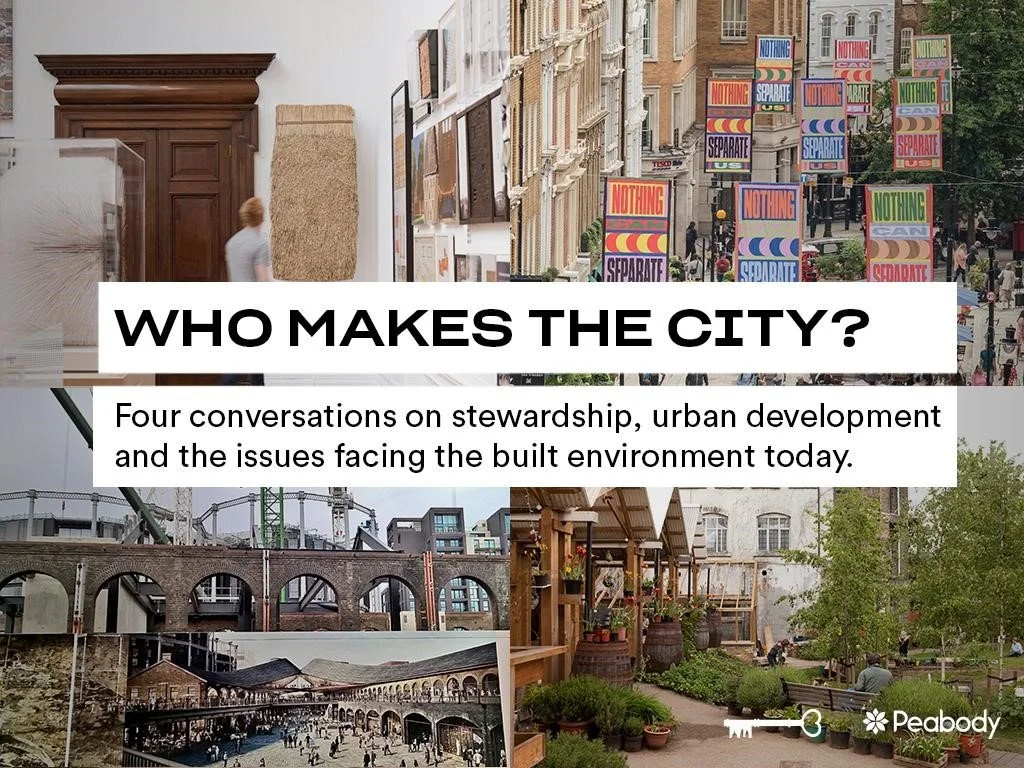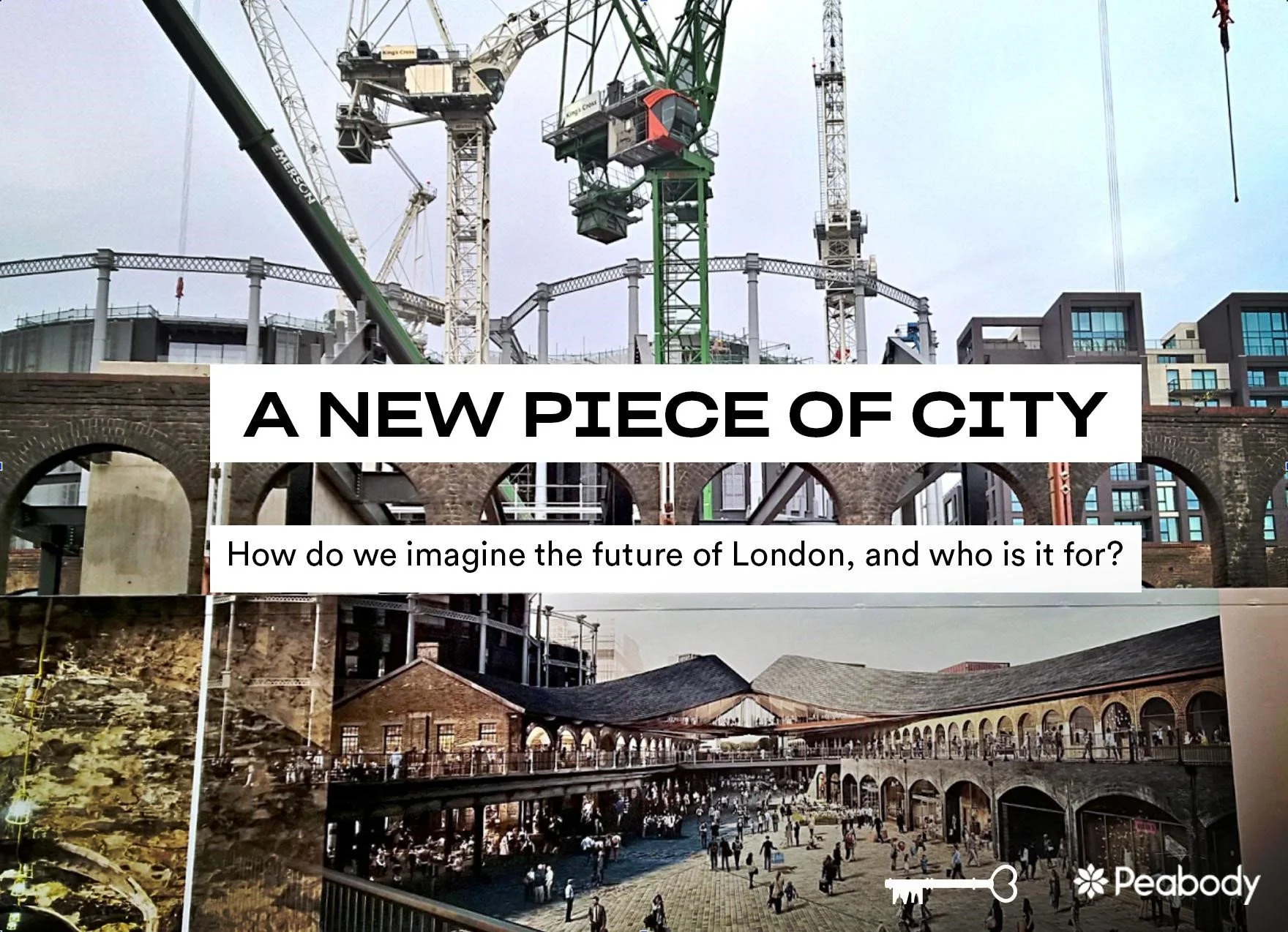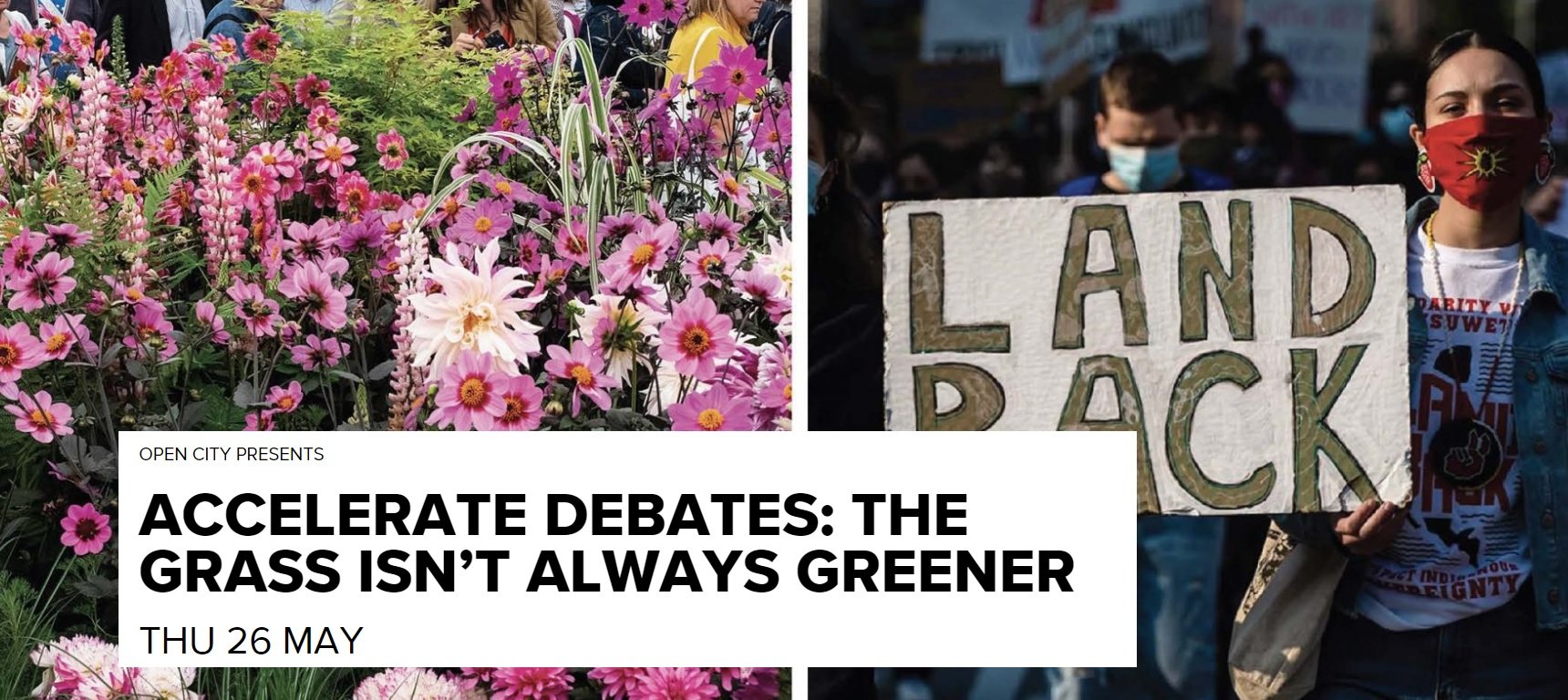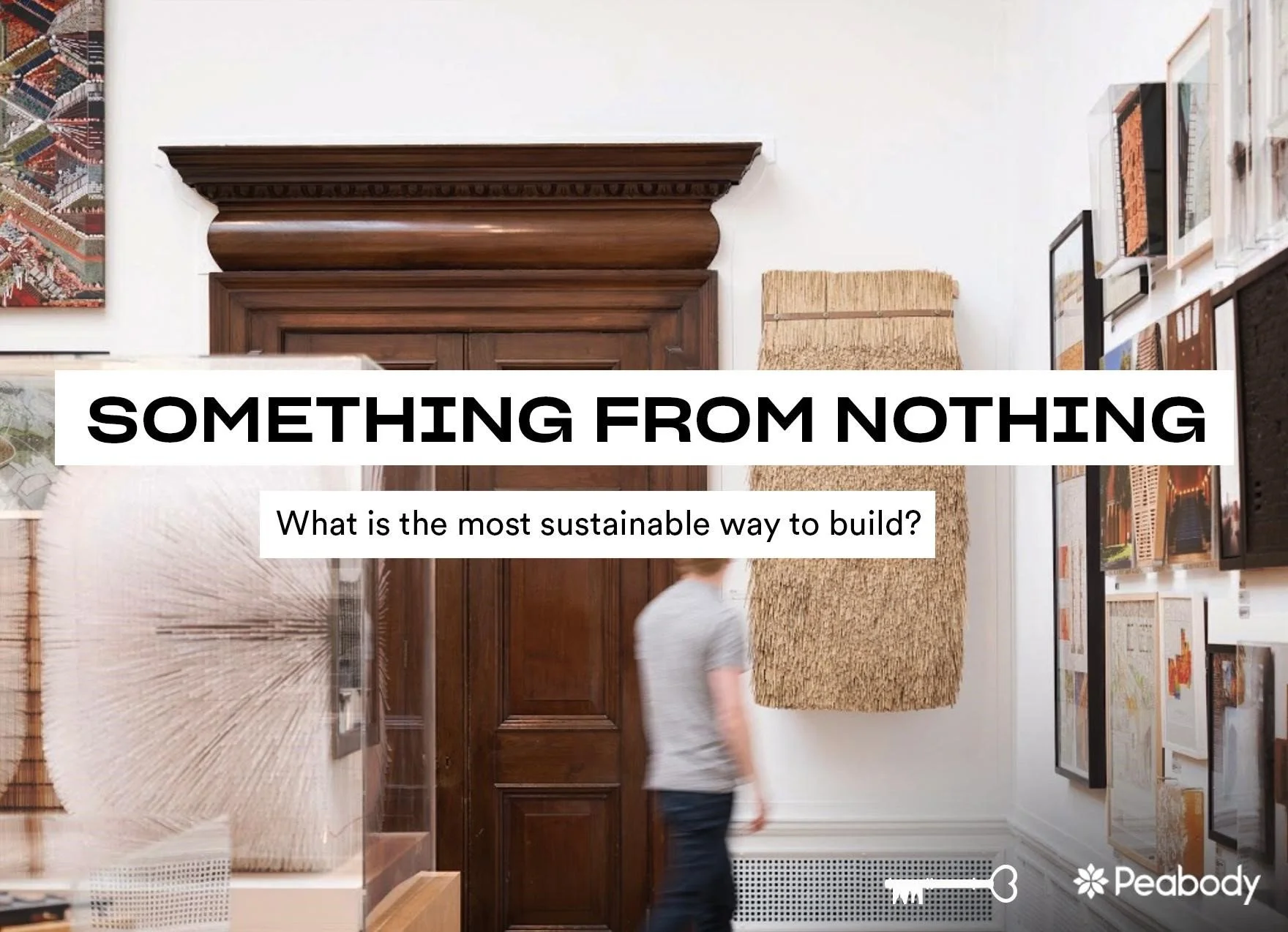Who Makes the City? A new series of public events, supported by Peabody
Open City and Peabody announce a new public programme in association with the Open City Stewardship Awards. Open to everyone with an interest in the built environment, this series of public events will discuss stewardship – the long-term care of buildings and open spaces – and its role in urban development.
Who Makes the City? is a four-part series of panel debates introducing people from a wide range of professions who are making, maintaining and managing buildings and open spaces in cities across the UK.
Delivered in support of the Open City Stewardship Awards, each event will ask panellists to discuss their organisation’s work in relation to a topical question affecting people living in our cities . Together we will debate and challenge conventional approaches to places, and explore how to maintain and improve the built environment for the long-term.
A New Piece of City: How Do We Imagine the Future of London, and Who Is It For?
WEDNESDAY 4 MAY, 6.30PM
Church Hall, St. Botolph without Bishopsgate
‘A new piece of city’ is a phrase often used to convey a type of civic sensibility – but no place is completely new. Despite the polished visions represented on hoardings across London, from King’s Cross to Greenwich, Vauxhall to Battersea, each regeneration project starts from a place that is perhaps a little rough around the edges. It’s a process that involves an adjustment in the perception of an area alongside its physical improvements.
We hear the most about this when the act of looking forward feels synonymous with an erasure of the past. Recent stories include Tottenham’s Latin Village, which recently avoided redevelopment after a 15-year battle. In this scenario, the role of time is clear – a city isn’t made overnight, so who is it that really participates in the making of a place? How do we recognise the role of maintenance and ongoing care, and where do we draw the line between cultivation and control?
Chair: Will Palin, Chief Executive Officer of Barts Heritage Trust
Panellists:
Ellen Halstead, Peabody’s Director of Strategy & Programme for Thamesmead
Thomas Ball, Director of Our Yard at Clitterhouse Farm
Julian Robinson, LSE Director of Estates
Charlotte Levy, Project Coordinator at Community Brain
Is landscape design a posh indulgence or a critical struggle for social justice?
THURSDAY 26 MAY, 6.30PM
Richmix, 5-47 Bethnal Green Road, London, E1 6LA
Posh Indulgence
For many people, landscape means glamorous garden shows, latin plant names and wealthy landowners indulging the latest trend in perennials. In cities, landscape architecture is often seen as a soft posh luxury sprucing up dubious regeneration projects with cosmetic greenery – a pleasant but bougie addendum to the hard graft of urban design. For too long allotments, community gardens and city farms have only appealed to a small minority of predominantly middle class, largely white and usually retired hobbyists. But in recent years set piece projects like the Queen Elizabeth Olympic Park have democratised landscape culture. And now ambitious strategies to activate landscapes and bestow a sense of ‘place’ are delivering a powerful new sense of common ownership which transcends title deeds.
Critical Struggle
Land, and who has access to it, has been at the heart of all struggles for a more equitable society for centuries. Bound up in wealth, power and democracy the question of who shapes our landscape is a question of who controls the city. Holistic landscape design is often the difference between a thriving neighbourhood and an alienating streetscape. Decent space for gardening and growing is a lifeline for thousands supporting good health, independence and tackling food poverty. Landscape is at the root of how we fight climate change, address urban inequity and create a better city. There is no justice without land justice and no cityscape without landscape. The two are inseparable, and the next generation of urban practitioners must democratise them both.
Created as part of the Open City Stewardship Awards and the Accelerate programme in association with Peabody, this debate will examine the role of land ownership, bringing together essential voices in the conversation to discuss the role of landscape architecture in relation to the burning social issue of land justice in London.
Each speaker will both defend and critique the world of landscape design, celebrating its strengths and challenging its failures. For any designer entering education or practice in the built environment, this is a battle that needs to be fought.
Londown podcast: Stewardship Special
THURSDAY 23 JUNE
John Lewis, Peabody’s executive director for Thamesmead will feature as guest pundit on Open City’s award-winning Londown podcast. We’ll be discussing the biggest architecture stories of the week with a special focus on urban stewardship. Collective, ongoing acts of care in the built environment can help us respond to key issues of today – from addressing social, political and racial inequalities, to responding to housing, climate and biodiversity crises. From small-scale projects to major programmes of regeneration and renewal, we’ll consider how we can best work together to future proof our towns and cities.
Londown Live: Something From Nothing – What is the Most Sustainable Way to Build?
THURSDAY 6 JULY, 5PM
Forum, Bureau D1, Design District, 19 Soames Walk, SE10 0AX
A live recording of The Londown podcast held as part of the Open City Stewardship Awards public programme featuring architect and engineer Smith Mordak, Peabody director of sustainability Richard Ellis and Open City director Phineas Harper
Join the studio audience for a special recording of the award-winning Londown podcast at the Forum in Bureau, Design District.
The live panel discussion is part of ‘Who Makes the City?’ a new series of public events, supported by Peabody in association with the Open City Stewardship Awards.
The Wednesday 6 July event – titled ‘Something From Nothing – What is the Most Sustainable Way to Build?’ – will see Phineas Harper and special guests Smith Mordak and Richard Ellis review the week’s biggest London architecture news with a special focus on holistic green construction.
Buildings account for 38 per cent of UK carbon emissions. Of this figure, 28 per cent is generated by the ongoing operational needs of existing building stock, outlining the scale of intervention needed to make them fit for the future.
Better understanding of the heavy embodied carbon of traditional building materials such as bricks and concrete has led to the adoption and development of lower-carbon and bio-based materials. It has also led to calls for significantly less demolition and more consideration of adaptive reuse as an alternative to redevelopment.
With so many different approaches, which strategies should we be looking to as we shape the city for the next generation? Hear fresh takes on this crucial debate and contribute to the recording itself as live studio audience in this pioneering new format.
Doors open 5pm and recording starts 5.30pm Wednesday 6th July in Forum, Bureau D1, Design District, 19 Soames Walk, SE10 0AX. Tickets: £8
The Londown is produced in association with the Architects’ Journal and won Best Podcast at 2021 Archiboo Awards.





